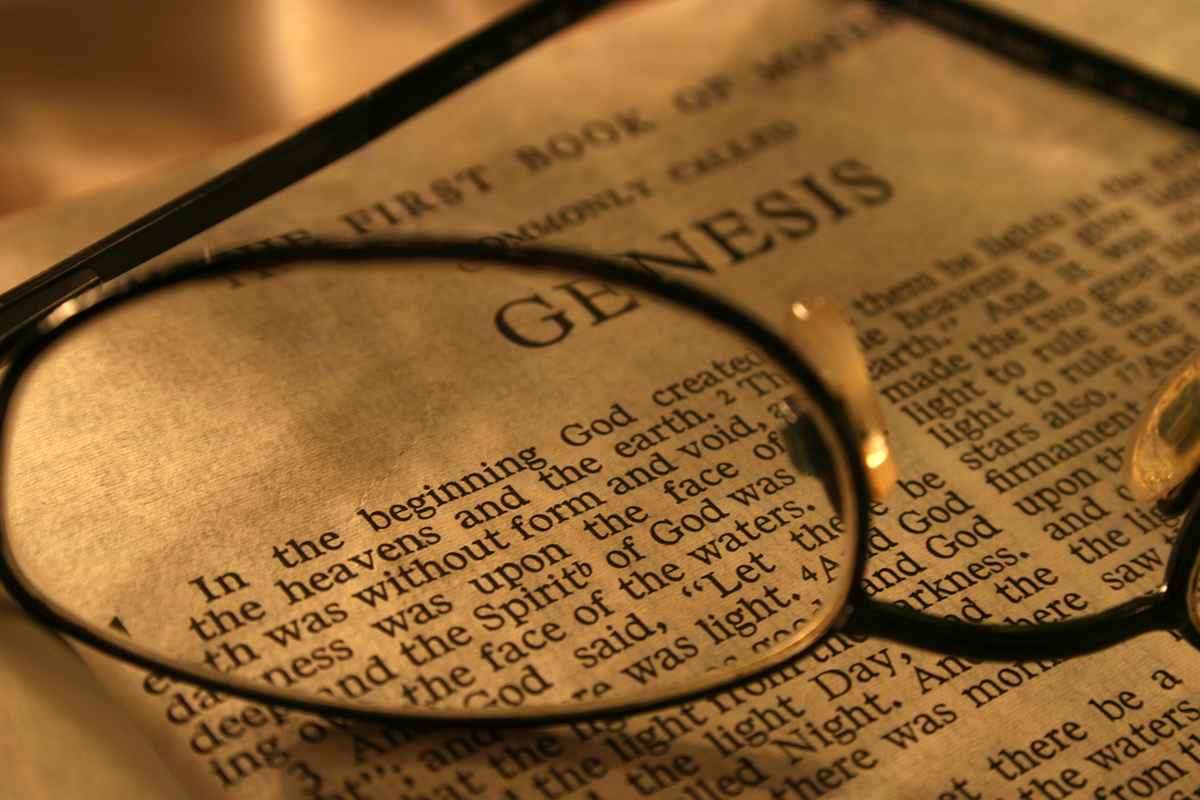
by Tyler Sams
Synopsis: By virtue of the creation which He brought into existence, Jesus demonstrates His great power and assures us that our confidence in Him is well-placed.
"In the beginning, God created the heavens and the earth." With these words, Moses began the most significant message known to man, a message that would reach its crescendo in the death, and subsequent resurrection, of God's own Son. As the story of redemption developed throughout Scripture, the Holy Spirit would call back to Moses's words as John began his account of the life of Jesus. Turning his attention to the beginning, unlike the other gospel writers, John succinctly explains that Jesus, in His pre-incarnate state (cf. John 1:14), was there. He was there with God. He was God. Through Him, all things were made (John 1:1-3).
Differing from the synoptic authors, John immediately emphasizes a reality to his audience—Jesus's existence did not begin at the moment of His conception within Mary. Instead, John pulls back the curtain to reveal to us what was going on at the beginning. Before man was created, before grass and trees dotted the landscape, even before the earth existed, Jesus was there. To be fair, Moses hinted at this reality when the Holy Spirit inspired him to use a plural Hebrew noun in Genesis 1:1 ("God," in Hebrew, is Elohim) and by speaking of a plurality involved in the creation of man in Genesis 1:26ff. However, John is more precise and more direct in his statements.
This Word, later understood to be Jesus, the Son of God (John 1:14), was present at the beginning with God. The beginning of what? In John 1:3, John seems to be speaking of the same "beginning" as Moses—the beginning of creation. Before anything was created, God was there. As John makes clear, Jesus is accurately called God.
The unity between Father and Son, which John references throughout his gospel account, is introduced here. Jesus was there at the beginning with His Father, with God. John speaks of at least two distinct persons, as one is described as being with the other. Further, Jesus is described as being "begotten of the Father" (John 1:14), pointing us to the reality of at least two persons under consideration in this text. Jesus and the Father were present together, at the beginning.
This Word, who later becomes flesh, is here called God. John obviously does not intend for us to understand "the Word" as a reference to the Father (John 1:14), but expects us to accept the reality that "the Word was God." Some have been troubled because John references Jesus's divinity in the past tense in English—Jesus "was God." However, a quick examination of the Greek terms under consideration helps us understand what John is saying. The Greek word translated by "was" in John 1:1 is eimi, an imperfect verb. Though often translated using the English past tense, Greek imperfect verbs generally reference continuing action. In this case, it is the idea that the Word was, and continues to be, God. Contrast that to John 1:14, where a specific moment in time is referenced by the aorist verb "became" (ginomai). Whereas Jesus's divinity is an ongoing condition, there was a specific moment in time when His experience in the flesh began. However, that experience in the flesh does not mitigate the fact which John lays down in his introduction: Jesus is God.
John proceeds to describe Jesus in the beginning. Rather than a created being, He was actively involved in creation. All that we can see around us was brought into existence through the Word, who was present at the beginning (John 1:1-3). To an original audience that would have been familiar with the Genesis account, John unmistakably identifies Jesus as divine—He created! With Moses's usage of the plural Elohim in Genesis 1:1, John's point is made even stronger: if one could accept the Father as creator and God, why couldn't one likewise accept Jesus?
John is not the only inspired writer to address the idea of Jesus's pre-existence and role in creating the universe. While offering convincing testimony to the Colossians of the supremacy of Christ, Paul refers to the role of Jesus in the world's creation. While speaking of Jesus as king (Col. 1:13), head of the church (1:18), and reconciler (1:20), Paul notes that Jesus was involved in creation (1:15-17). He even describes Jesus as the "firstborn of all creation" (1:14)—a position He occupies because He created and sustains all things. Paul advances then further when he affirms that not only was Jesus involved in the physical creation, but also He continues to "hold together" the universe that He brought into existence (1:17). How comforting to know that our Savior is active and involved in His creation today! Much like John, Paul blends the concepts of Jesus's pre-existence and incarnation. Though present and active at the creation of the universe, Jesus eventually came in the flesh to be seen by men (as the "image of the invisible God" [1:15]) and to offer His life as a sacrifice for lost humanity (1:20). Paul's argument that Jesus is supreme is convincing. Jesus was present at the beginning (1:16) and is the creator of all (1:16), sustainer of the universe (1:17), and the image of the invisible God (1:15). How great is the Savior whom we serve!
The writer of Hebrews adds his voice alongside those of John and Paul in testifying to the pre-existence and creative power of Jesus. In a book that emphasizes the superiority of Christ and the covenant He established, the author immediately impresses upon his audience the unquestioned significance of Jesus. While God spoke in many forms and fashions throughout the ages, He speaks in this last period of human history through Jesus (Heb. 1:1-2). To impress upon his audience the significance of Jesus, the writer of Hebrews notes why God's communication through His Son is both ultimate and superior: He is the heir of all things, the creator of the universe, the express image of the person of God the Father, and the powerful sustainer of the world (Heb. 1:2-3). Following that, note what is said of the Father and Son in verse 2. The author of Hebrews elaborates further than either John or Paul, in that he describes the roles of both the Father and Son in creation. The Father willed creation into existence (consistent with His speaking in the Genesis account), and the Son followed the will of the Father, bringing into existence that which He spoke. The Son of God who brought the world into existence and sustains it with the "word of His power" is worthy of our trust and dedication.
As he continues throughout his epistle, the writer of Hebrews emphasizes the immeasurable hope available in Jesus, the powerful creator. That creator entered His creation and experienced the frustrations and temptations of life in the flesh so that we might find deliverance from our sins (cf. Heb. 2:9-18; 5:7-10). Our Savior, who brought the world into existence at the word of His Father, truly has a name above all other names! 


